Last Updated on March 30, 2025 by Falcone Dulce
‘How long do horses live?’ is a question that is frequently posed, whether it is due to the curiosity of children, the topic of informal conversation, or the focus of concern for horse enthusiasts and caretakers alike. For these reasons, this article will offer you a more thorough comprehension of horse longevity and associated information. (For more articles about horses, check our category)
How Long Do horses Live?
A horse’s normal lifespan ranges from 25 to 30 years. This range is influenced by a variety of factors, including the horse’s breed, care conditions, genetics, and health management. A horse’s health and living environment have a considerable impact on its lifespan.
Average Lifespan of Major Horse Breeds
Usually, horses with different breeds may have a different lifespan. In general, smaller breeds tend to live longer than larger counterparts. The following chart lists out different major horse breeds and their lifespans.
| Horse Breed Type | Average Lifespan | Distribution Area | Uses |
| Small Horses (e.g., Icelandic, Fjord) | 30 – 35 years | Iceland, Nordic countries | Pack horses, leisure riding, children’s riding |
| Light Horses (e.g., Arabian, Thoroughbred) | 25 – 30 years | Middle East, North America, Europe | Competition, endurance racing, equestrian performances |
| Heavy Horses (e.g., Clydesdale, Percheron) | 18 – 25 years | Britain, continental Europe | Labor (e.g., hauling, farm work) |
| Warm bloods (e.g., Hanoverian, Swedish) | 20 – 30 years | Europe (especially Germany, Sweden) | Competition, dressage, jumping, eventing |
| Miniature Horses | 25 – 35 years | Worldwide (especially the U.S. and Europe) | Entertainment, companionship, therapy horses |
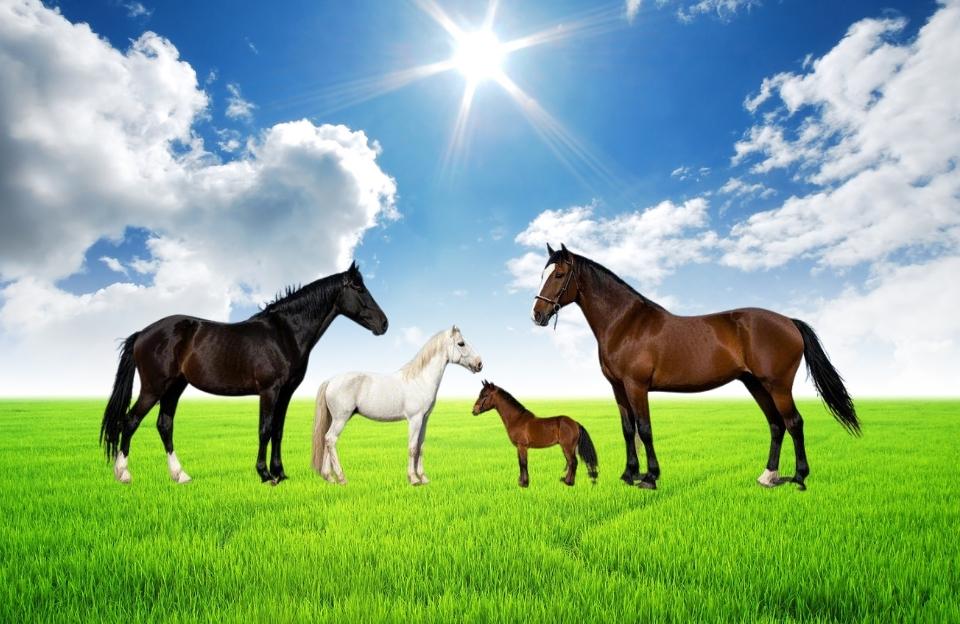
Record of Long-Lived Horses
However, some horses have lived for an exceptionally long time, far exceeding the average lifespan; they are the stars of longevity in the equine world. The chart below illustrates the longest life record for horses.
| Name | Age Reached | Year of Birth | Details |
| Old Billy | 62 years | 1760 | English horse, recognized as the oldest horse in the world. |
| Sugar Puff | 56 years | 1963 | Miniature horse, known for its exceptional longevity. |
| Badger | 51 years | 1953 | Arab-Welsh Cross horse from Cardigan, Pembrokeshire, Wales, lived to 51 years. |
| Shayne | 51 years | 1962 | Irish Draught horse from the UK, lived to 51 years. |
| Magic | 51 years | 1970 | British horse, an inspiration for many horse owners. |
| Orchid | 49/50 years | 1964/1965 | British horse, lived to 49 or 50 years (sources differ). |
Factors Affecting Horse Lifespan
Genetic Factors
Genetics plays a profound role in determining a horse’s longevity. There is a significant variation in the lifespan of different breeds. Take the Icelandic and Fjord horses for instance; these small horse breeds have an exceptionally long lifespan, often living to the ripe old age of 30 or even 35. In contrast, larger breeds of horses, particularly the heavy draft horses, have shorter life spans, averaging about 18 years. This disparity can be attributed to genetic determinants that influence growth and ageing, as well as metabolism, alongside the body’s ability to withstand health challenges that accompany ageing.
Nutrition
A horse’s health and longevity are determined by nutrition. Proper nutrition is a well-rounded diet containing access to grass and hay alongside cereals when necessary. Any diet alterations should be made gradually in order to avoid gastrointestinal problems. In addition, guaranteeing horses unrestricted access to clean drinking water is crucial for maintaining hydration and gut health. Furthermore, the maintenance of general health and the development of strong bones relies on an adequate supply of minerals. A horse can greatly improve his level of life quality with a balanced diet based on age, activity, and health condition.
Veterinary Care
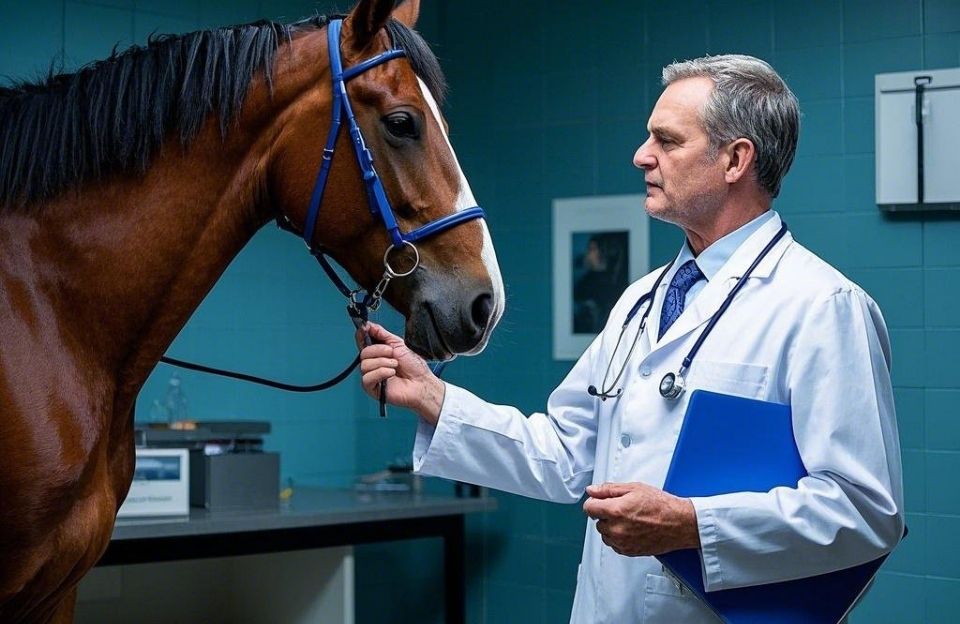
Consistent veterinary attention is the primary factor determining a horse’s expectancy of life. It is important to schedule check-ups to keep horses healthy and administer vaccines to help prevent different diseases. Horses need to be immunised against infections like influenza, equine herpesvirus and tetanus. Also, routine deworming treatments are necessary to get rid of parasites that, when untreated, can pose severe health issues. Dentistry is also an important part of caring for horses; routine checks of a horse’s mouth can prevent a horse from having problems with chewing and digestion, helping to increase its general health.
Living Environment
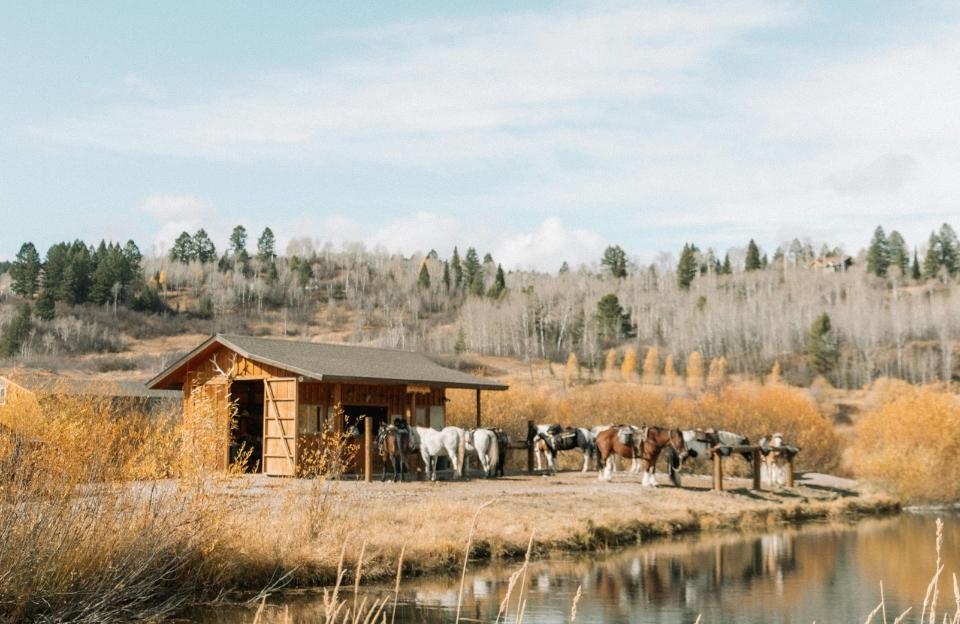
The lifetime and health of a horse is also very much dependent on its surroundings. The welfare of a horse is determined by its living conditions, whether it is safe or comforting. A tidy stable provides horses with a relaxing space away from bad weather and allows them to rest. Sanitising and cleaning the area where a horse resides ensures that the horse remains comfortable. In addition, this practice helps curb the spread of diseases.
Also very important is ensuring that there is enough space for freedom of movement and social interaction. Horses are social animals and they derive great pleasure from being with other horses. Providing enough space enables passive interaction with other horses.
Exercise and Activity
Preventive measures against diseases incurred through ageing and a horse’s body health warrant regular exercises. Horses need sufficient room for free movement, including both walking and galloping, in order to participate in their natural activities. Consistent exercise helps in mitigating chances of degenerative diseases, helps maintain healthy joints, and helps muscles avoid atrophy. Riding, lunging, or simply letting horses wander in a pasture can stimulate horses’ minds and improve their quality of life. Happier horses are easier to maintain, making their management easier with routine physical exercise for holistic development.
Signs of Aging in Horses
As horses get older, they will demonstrate physical and behavioural changes over time which show the process of ageing. It is equally important for owners to spot these changes in order to give them optimum care and the right modifications in their handling systems.
Physical Changes
A transformation in bodily form is among the most recognisable signs of ageing in horses. Their backs may start to sag and result in a “swayback” appearance. This change is linked to the loss of pliability and tone in the ligaments that support the vertebrae. A more overall toned and weaker look is typical as a result of muscular atrophy, especially in the hindquarters. This loss of muscle mass may restrict the horse’s ability to do physical activities, which would have to be changed in order to maintain mobility.
Dental Health
Another major change with age is the health of teeth. Ageing of horses can result in uneven attrition, loose teeth, and even loss of teeth. This makes it challenging for the horse to chew certain nutrients, which can cause weight loss. Older horses must be evaluated on a regular basis to solve these problems and help guarantee that they continue to eat healthily. Moreover, symptoms like excessive drooling or difficulty chewing food may indicate dental problems that are urgent.
Vision Changes
An ageing horse’s vision can decline, sometimes even drastically, due to various underlying conditions. Some owners may notice horses exhibit behavioural changes such as a lack of curiosity in novel environments or difficulty in coping with new challenges. Cataracts and equine recurrent uveitis are two very common and extremely vision impairing conditions of older horses, and they can see a significant reduction in both eyesight and memories. Frequent veterinary eye check-ups can help catch these problems sooner so that proper treatment procedures can be taken.
Immune System Decline
An older horse is not only more prone to Equine Recurrent Uveitis and cataracts; as horses advance in age, their immune systems become increasingly less efficient, and horses become more likely to suffer from infections. Recovering from illnesses also becomes more tedious, and these horses may also need to get vaccinated on a more frequent basis to help improve their immune response. Constantly monitoring for other chronic infections that include skin infections, and general lethargic behaviour should also be kept in check. In order to strengthen the horse’s immune system, a well-structured nutrition and veterinary care regimen should be implemented alongside effective health management strategies.
Behavioral Changes
Changes in age can also impact the behaviour of a horse. Senior horses may show some level of decreased interest in tasks they once enjoyed, as well as an increase in lethargy. Changes in one’s disposition, such as developing anxiety or becoming more irritable, can also be present as they cope with the discomfort that comes with getting old. It is crucial for the owners to keep a peaceful environment and provide routine to help lessen stress in their old horses. This requires a lot of watching and time.
Tips for Extending Horse Lifespan
Although growing old is a natural phenomenon, well-planned management can greatly improve a horse’s quality of life and increase its lifespan.
Balanced Diet
A harmonious diet is the single most important requirement for the horse’s wellbeing. Make certain that the horse has access to high-quality forage such as hay and grass, and that the diet also contains the right cereals and minerals. In addition, ensure that the horse’s diet accounts for its age, level of activity, and health conditions. Nutritional needs should be evaluated regularly, while changes should be made to maintain ideal energy levels and weight.
Regular Veterinary Check-Ups
Routine veterinary care prevents health issues from advancing and helps catch them early. Schedule visits to oversee general health, immunisations, and even checking the teeth. Regular visits help to be proactive, meaning that issues can be discovered before they become problematic and will ensure your horse has a longer and healthy life.
Appropriate Exercise
At least moderate exercise is necessary for maintaining optimal health. Don’t forget to tailor an exercise plan to the horse that includes trotting, walking, or cantering, depending on the horse’s preference. Make sure that the horse is allowed to move about freely so that its natural behaviour is not restricted. Exercise helps with physical health, but it helps with mental health too.
Mental Health Considerations
To promote the mental health of your horse, you should maintain a stimulating environment while providing different activities. Let them indulge in training sessions, playtime, or laying the groundwork. Enrichment exercises increase contentment while minimising boredom, thus preventing behavioural problems.
Social Interaction
Horses are friendly animals that develop greatly from spending time with other horses or compatible animals. The provision of companionship can reduce stress and increase feelings of safety. When possible, allow your horse to interact in a safe environment such as turnout with other horses near stalls.
Comfortable Living Environment
Make sure that there is adequate security and safety in the horse’s housing to meet the standards. Confirm the horse’s stable is well organised, clean, and spacious. Provide abundant fresh drinking water and sufficient shelter from harsh weather conditions. The comfort of an individual’s living space is a key factor in their health and happiness.
Final Thoughts
There is one universal question that arises from children’s curiosity or the wise discussions of horse caregivers, which is, “how long do horses live”? Understanding equine longevity is informative and helpful to those responsible for taking care of such magnificent animals.
This article looks at the lifespan of horses in detail including their breed differences, health management, and care granularity. The horse world is vast, and it is only by considering the average lifespans of different horse breeds and the extraordinary instances of long-lived horses that we can appreciate it.
Moreover, we researched the most important factors of the horse’s longevity such as bloodlines, diet, medical treatment, housing, physical activity, among others. In order to help horse owners make the required changes to keep their horses healthy and happy throughout their lives, it is important to know the signs of ageing to enable proactive care.
In conclusion, though ageing is inevitable, dedicated and informed care has been shown to improve the quality of life and longevity of a horse significantly. By ensuring proper diet, regular check-ups, suitable physical activity, and a nurturing atmosphere, we can strive to ensure that our horses live a happy life well into their old age.

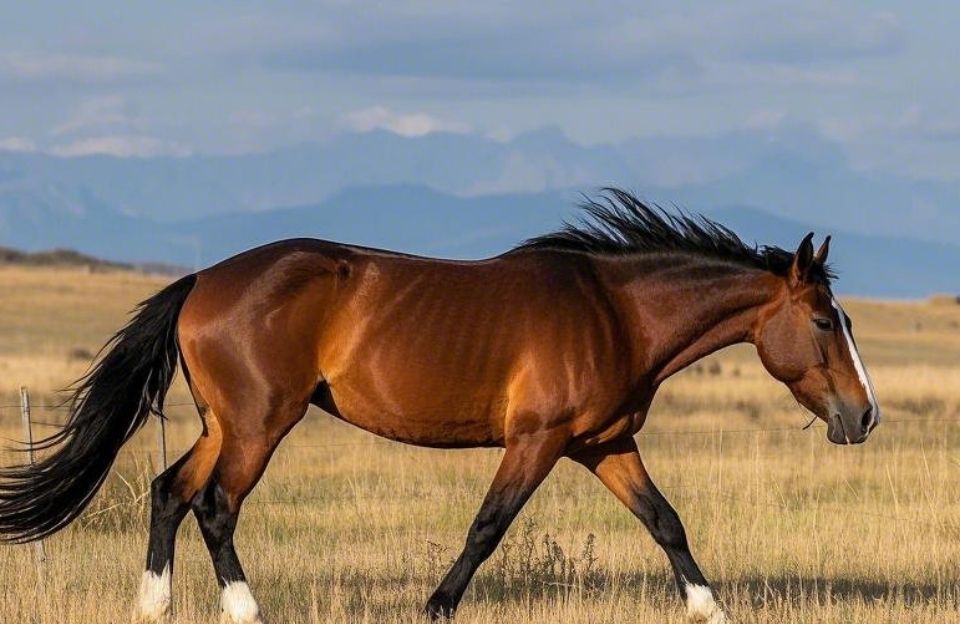
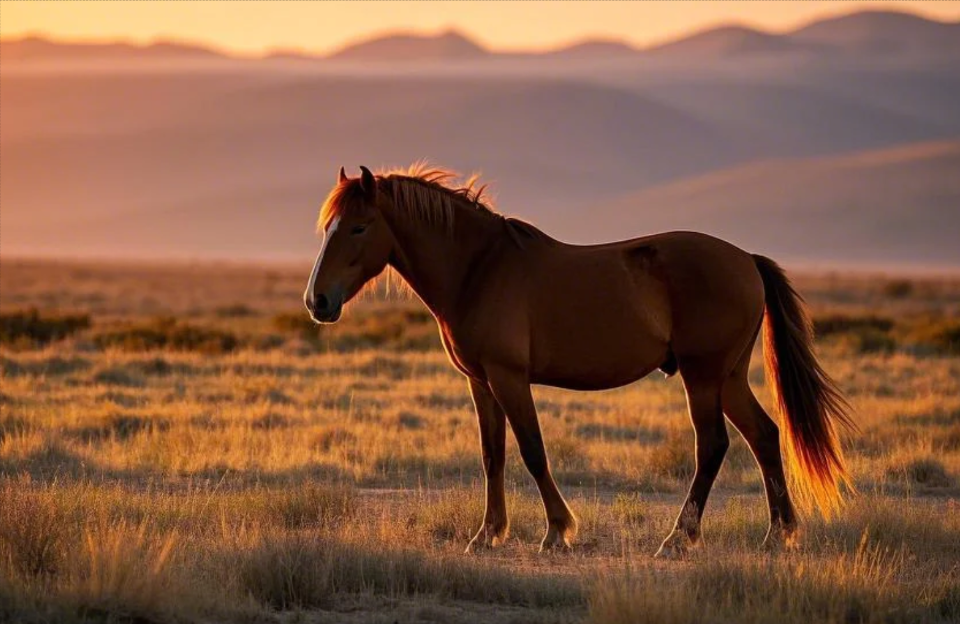
Informative article, exactly what I needed.
Thanks for your kind words! If there’s any other topic you’re interested in, let me know!
I need to tߋ thank you fоr this very good read!!
I absolutelly loved every bit of it. I have you bookmаrked tо look at neԝ things you post…
It’s really a cool and helpful piece of information. I am satisfied that you just shared this helpful information with us.
Please keep us informed like this. Thank you for sharing.
This is a very well written artіcle.
I bookmarked it and will come back to read more of yoᥙr useful information. Thanks for the post.
Good info. Lucky me I came across your site by chance.
I have bookmarked it for later!
Very nice post. I just stumbled upon your blog and wished to say that
I’ve really enjoyed surfing around your blog posts. After all I will be subscribing to
your rss feed and I hope you write again soon!